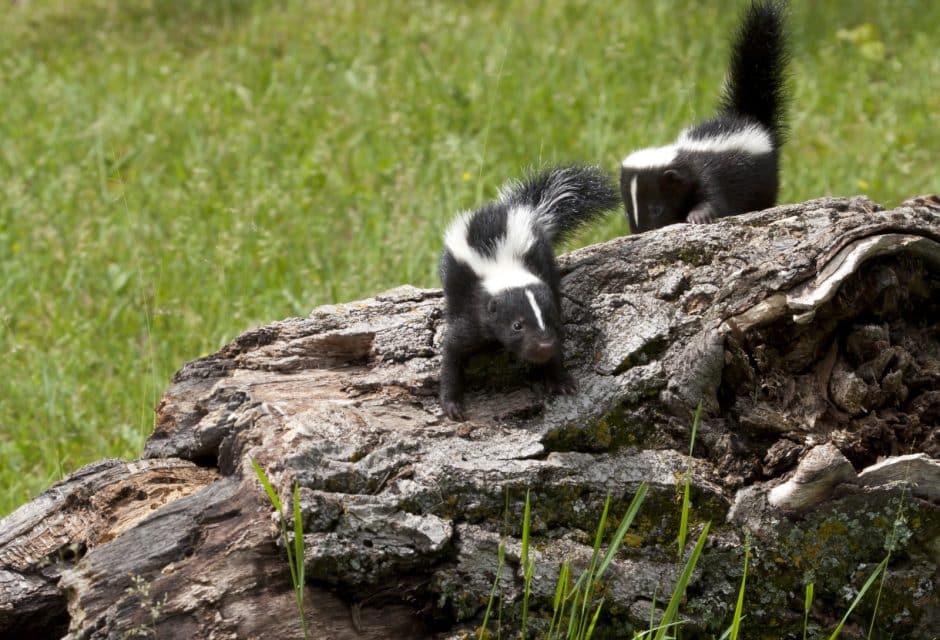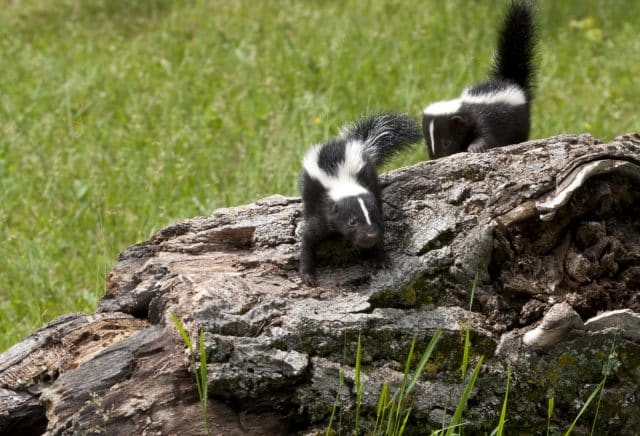

How To Re-home A Skunk Family
And why taking them to the wild isn't the answer
I’ll tell you what stinks; having your mother kidnapped and taken away to the mysterious “wild.”
When a California homeowner recently hired a trapper to remove a skunk denning under her home, no one stopped to check for babies. For a while, the two young skunks stayed in their den, cold and scared. As their tummies grew tight from hunger, they started to peep and squeal. Finally, three days after their mama was shipped off to the wild, they wandered out from the security of their den into the homeowner’s yard, vulnerable to dogs and other predators.
When she spotted the babies, the homeowner who had hired the trapper contacted the Fund for Animals Wildlife Center, who will care for them until they are strong enough to fend for themselves. But their mother skunk would have been better at raising them.
A Precautionary Tale
To the surprise of many, a city skunk cannot survive well in the rural outback. She doesn’t know how to hunt or locate fast moving prey. She is used to foraging among trash bins and tracking down easy-to-catch insects and rodents under your house. She knows how to evade a barking dog, but not a rattlesnake or great horned owl.
Skunks like urban living. They thrive in the urban setting and trapping one to take her “back to the wild” is only assuring that she will struggle to survive. She doesn’t know where to find food or water. Other animals have already claimed all the good hiding spots.
And in this sad case of one mama skunk who happened to have two babies still back in the city, she is going to exhaust her energy searching for her offspring.
What to Do with Wild Neighbors
If only they had called the Fund for Animals Wildlife Center in Ramona, California first. They could have told her how to encourage the mama to move her babies along to a better place.
It’s hard to know exactly what to do when you find yourself living with wild neighbors. This homeowner, like most people, didn’t want to hurt the skunk under her house; she thought she was doing the right thing—but it turns out that trapping is rarely the answer. Some basic Humane Exclusion techniques would have kept the whole family together, and the skunks would have found a better place to take up residence. Instead we are raising two orphans with a missing mother who will never know that her babies are okay.
See this page to find out how best to live near and deal with this gentle species.
The Fund for Animals Wildlife Center has received more than 50 orphaned skunks in the last two years, most of whom have similar stories. These are the first two of the season. Use our resources below to solve conflicts with the critters in your area, as well as find out what to do if you find injured or orphaned animals.
Resources
Found an Injured or Orphaned Animal?
Spring is baby season. Learn how (and when) to help your wild animal neighbors.
Keep Wildlife Out
This season, combine gutter cleaning with inspection to keep wildlife from moving into your house.
Use our house diagram infographic to locate and fix potential problem spots in your house.
Information & practical advice for creating a humane backyard.
Join the newsletter and never miss out on dog content again!
"*" indicates required fields
By clicking the arrow, you agree to our web Terms of Use and Privacy & Cookie Policy. Easy unsubscribe links are provided in every email.